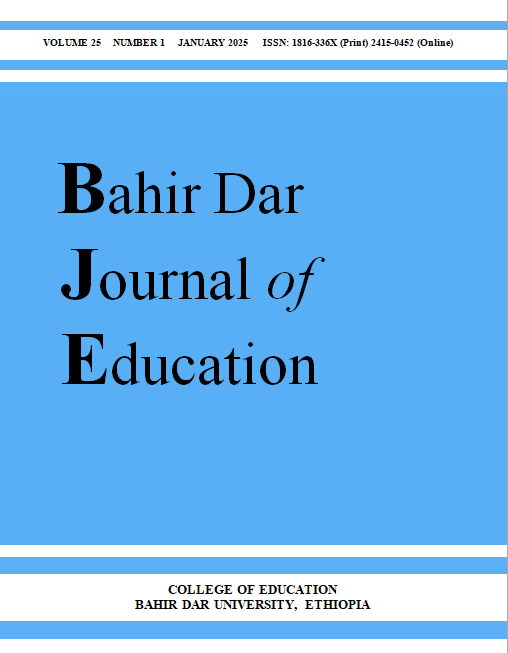Development and validation of propensity to cheat measure in the Ethiopian public universities
DOI:
https://doi.org/10.4314/10.4314/bdje.v25i1.4Keywords:
Propensity to cheat, reliability, validity, university Students, EthiopiaAbstract
The major objective of this research is to develop a comprehensive and psychometrically sound scale assessing students' perceived propensity to cheat employing the theory of planned behavior. An exploratory sequential mixed design method was used to qualitatively explore the forms of intention to cheat and their indicators, followed by a quantitative method to examine the psychometric qualities of the scale based on a random sample of 500 (male = 367 [73.4%]; female = 133 [26.6%]) university students. Structured interviews and questionnaires were used to collect data. The propensity to cheat scale (PCS) is a valid and reliable tool for use in research, according to explanatory factor analysis and reliability evaluations. The PCS, therefore, measures what it promises to measure.

